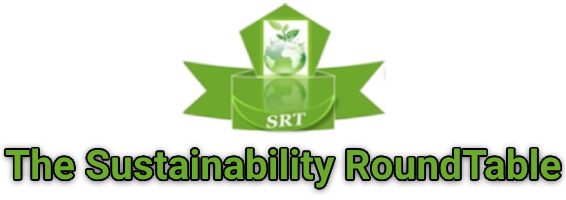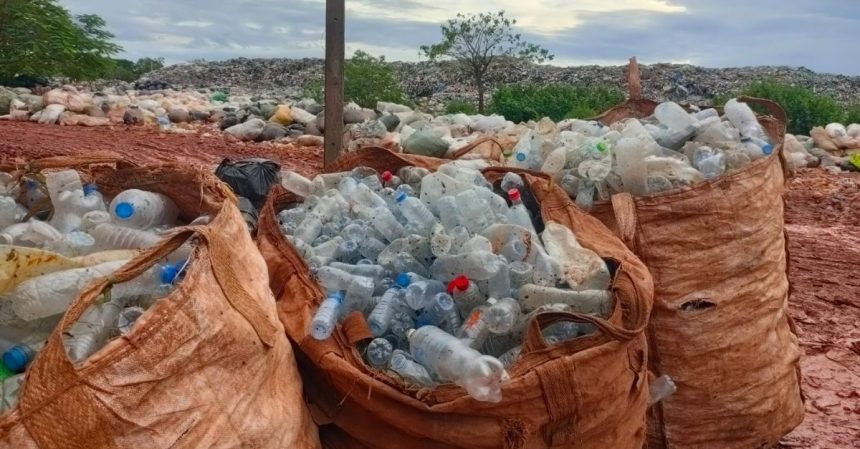On May 18, 2023, Nigeria took a bold step towards addressing one of the world’s most pressing environmental crises—plastic pollution—by officially launching the Nigeria National Plastic Action Partnership (NPAP). The event, held under the auspices of the Federal Ministry of Environment (FME) and the Global Plastic Action Partnership (GPAP), marked a significant milestone for Nigeria in its efforts to combat plastic pollution. The key output of this collaboration is the eagerly awaited National Plastic Action Roadmap, titled “Towards A System Change in Plastic Pollution – A Roadmap for the Sustainable Use of Plastics in Nigeria”.
As the roadmap prepares for its formal unveiling, it is poised to serve as a crucial document guiding Nigeria’s ambition for a plastic pollution-free nation by 2040. This comprehensive strategy is built on a clear understanding that the issue is not about eliminating plastic use altogether, but about ending plastic pollution through responsible and sustainable use. The roadmap is not just a policy framework but a signal to the world, especially investors, that Nigeria is ready for a sustainable transformation where plastics are managed effectively, creating a circular economy that generates jobs, reduces pollution, and spurs innovation.
At the heart of this ambitious project is the Global Plastic Action Partnership’s (GPAP) National Analysis and Modelling (NAM) tool, which has been pivotal in shaping Nigeria’s roadmap. This tool facilitates a data-driven approach, allowing countries to analyze their plastic flows, assess the environmental, social, and economic impacts of different pathways, and identify the most effective change scenarios.
KPMG West Africa, as the implementation partner, has been instrumental in guiding the application of the NAM tool. Through a series of stakeholder consultation workshops, KPMG ensured that every relevant player—from the informal sector to policymakers and industry representatives—was brought to the table. These workshops facilitated the creation of a Baseline Analysis for Nigeria’s plastic flows, providing critical insights into the country’s plastic consumption, waste management practices, and recycling capacities.
This Baseline Analysis enabled scenario modeling to project various future outcomes. By quantifying the economic, environmental, and social implications of different pathways, KPMG and its partners confirmed the most effective approaches for tackling Nigeria’s plastic pollution crisis. The final roadmap, developed using these insights, outlines the necessary steps and interventions that Nigeria must undertake to achieve a plastic-free future by 2040.
The Nigeria National Plastic Action Roadmap is not simply about reducing plastic waste; it envisions a complete system change in the way plastics are produced, used, and managed in Nigeria. This change is based on three core pillars: policy formulation, regulatory implementation, and investment stimulation.
- Policy Formulation and Regulatory Framework: One of the key features of the roadmap is its focus on creating a robust policy environment. By providing clear guidance for regulators, the roadmap will serve as a blueprint for new laws and policies aimed at reducing plastic pollution. These policies will address everything from plastic production to waste management, recycling, and the circular economy.
- Investors and Economic Opportunities: Another important component of the roadmap is its appeal to investors. By signaling that Nigeria is serious about tackling plastic pollution, the roadmap encourages investments in innovative solutions that drive sustainability. These include technologies for recycling, the development of biodegradable alternatives, and waste management infrastructure. Importantly, these investments will not only reduce plastic waste but also create new jobs and economic opportunities, particularly in sectors such as recycling, green technology, and manufacturing.
- Social and Environmental Impact: The roadmap acknowledges the critical role of informal sector players—waste pickers, recyclers, and small-scale enterprises—who have long been at the forefront of managing Nigeria’s plastic waste. By upscaling their operations and integrating them into the formal waste management system, the roadmap aims to maximize social impact while reducing environmental harm. It will also empower local communities through education and capacity-building initiatives, encouraging behavior change and fostering a culture of sustainability.
Several individuals and organizations have played crucial roles in bringing the Nigeria National Plastic Action Roadmap to life. Among them, Daniel Oderinde, Manager of the Nigeria National Plastic Action Partnership (NPAP), deserves special recognition for his sustained effort and unwavering commitment to the project. His leadership has been instrumental in driving the stakeholder consultations, overseeing the development of the roadmap, and ensuring that the various components of the plan are aligned with Nigeria’s sustainability goals.
In addition, the entire NPAP team deserves commendation for their resilience and dedication. Their collaborative efforts in engaging multiple stakeholders, including government agencies, private sector players, and civil society organizations, have ensured that the roadmap reflects a broad-based consensus and addresses the most critical challenges facing Nigeria’s plastic waste management system.
Equally deserving of recognition is KPMG West Africa, which has served as the technical implementation partner. Their expertise in using GPAP’s NAM tool and guiding the Baseline Analysis and scenario modeling has been invaluable in shaping the roadmap. Their focus on data-driven decision-making ensures that the roadmap is not only ambitious but also practical and achievable.
At the grassroots level, the Alikwomobu Center for Sustainability and Participatory Development (ACSPD) has made a significant contribution to the broader plastic action movement in Nigeria. Through its Plastic Action Behavior Change Campaign, the center has been driving awareness and education initiatives in local communities, encouraging responsible plastic use and waste management. These grassroots efforts, particularly strengthening capacity of informal sector players, are critical to the success of the National Plastic Action Roadmap, as behavior change at the community level is essential for achieving long-term sustainability.
Nigeria’s informal waste management sector is an integral part of the country’s plastic waste value chain. Comprising waste pickers, recyclers, and small-scale waste entrepreneurs, the informal sector has long been a silent yet crucial player in addressing the plastic pollution crisis. However, this sector has often been overlooked and under-supported by formal institutions, leaving it vulnerable to exploitation and inefficiency.
The roadmap acknowledges the invaluable role of the informal sector and outlines several strategies for integrating these workers into the formal system. By providing financial and technical support, the roadmap seeks to improve working conditions, increase efficiency, and ensure that informal sector players benefit from Nigeria’s transition to a sustainable plastic economy.
Moreover, the roadmap envisions the establishment of cooperatives and formalized recycling hubs, where informal sector workers can operate under safer and more regulated conditions. This integration not only benefits the workers but also contributes to the overall efficiency of Nigeria’s waste management system, increasing the country’s recycling capacity and reducing the environmental impact of plastic waste.
While policy reform and investment are critical components of the roadmap, behavior change is perhaps the most important factor in ensuring long-term success. As the Alikwomobu Center for Sustainability and Participatory Development has demonstrated through its grassroots campaigns, creating awareness and fostering a culture of sustainability are key to reducing plastic pollution at the community level.
The roadmap, therefore, places a strong emphasis on public education and behavior change initiatives. Through partnerships with civil society organizations, schools, and media outlets, the roadmap aims to shift public attitudes toward plastic use and waste management. This includes promoting the use of reusable materials, encouraging recycling, and discouraging the improper disposal of plastics.
In addition to community-based campaigns, the roadmap will leverage digital platforms and social media to reach a broader audience. By engaging the youth and urban populations, the roadmap seeks to create a new generation of environmentally conscious citizens who will champion Nigeria’s plastic revolution.
Despite the progress made in developing the roadmap, several challenges remain. Chief among them is the need for strong political will and consistent regulatory enforcement. Without the full backing of government agencies and policymakers, the roadmap risks becoming another well-intentioned but poorly implemented initiative. Therefore, it is essential that the government remains committed to the roadmap’s goals and works closely with all stakeholders to ensure its successful implementation.
Another challenge is the need for sustainable financing. While the roadmap provides a framework for attracting investment, securing the necessary funding to implement the various initiatives outlined in the plan will require significant effort. This includes mobilizing resources from both public and private sectors, as well as tapping into international climate finance mechanisms.
Finally, there is the challenge of ensuring that the benefits of the roadmap are equitably distributed. As the informal sector plays a critical role in managing Nigeria’s plastic waste, it is vital that these workers are not left behind in the transition to a more formalized system. Efforts must be made to ensure that the informal sector is adequately supported and that its workers are able to thrive in the new plastic economy.
The National Plastic Action Roadmap represents a turning point in Nigeria’s fight against plastic pollution. With the full backing of the Federal Ministry of Environment, the Global Plastic Action Partnership, and key stakeholders such as KPMG West Africa, the roadmap provides a clear path toward a plastic pollution-free Nigeria by 2040. However, the success of this ambitious plan will depend on the continued commitment of all stakeholders—government agencies, private sector players, civil society organizations, and everyday Nigerians.
As the roadmap prepares for its official launch, it sends a powerful message to the world: Nigeria is ready to tackle its plastic pollution crisis head-on. Through a combination of policy reform, investment, behavior change, and grassroots action, the country is poised to become a leader in the global fight against plastic pollution. With the right support and sustained effort, Nigeria can achieve its vision of a cleaner, healthier, and more sustainable future.


Leave a Reply